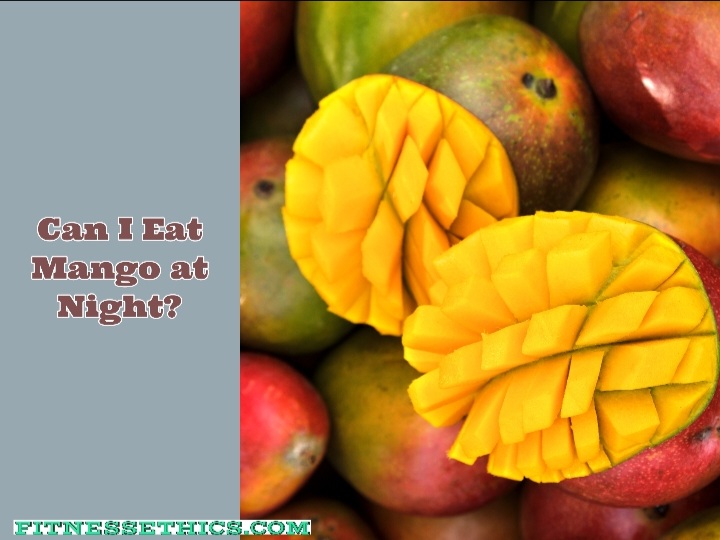Mangoes are not only delicious but also a nutritious fruit, making them a tempting option for a late-night snack. However, many people wonder whether it is safe and healthy to indulge in this tropical delight before bedtime. Let’s explore the potential benefits and drawbacks of eating mango at night to satisfy those midnight hunger pangs.
Is It OK to Eat Mango at Night?
Yes, it is absolutely okay to eat mangoes at night, provided you do so in moderation and consider a few factors. Mangoes are a rich source of essential nutrients like fiber and potassium. The high fiber content aids in digestion, and the presence of potassium supports heart health and helps regulate blood pressure.
One of the main concerns with eating before bedtime is the potential for weight gain, as the body’s metabolic rate slows down during sleep. However, mangoes are relatively low in calories compared to other late-night snacks like sweetened confectionery and junk food. Moreover, the fiber in mangoes helps you feel fuller for longer, reducing the chances of overeating during the night.
Mangoes also contain tryptophan, an amino acid that supports the production of serotonin, a neurotransmitter that promotes relaxation and sleep. This natural sedative effect could potentially help improve sleep quality, making it a suitable bedtime snack for those who struggle with insomnia or sleep disturbances.
However, it is important to remember that every individual’s body is unique, and some people may be more sensitive to consuming certain foods close to bedtime. If you experience any discomfort, bloating, or acid reflux after eating mangoes at night, it might be best to avoid them as a late-night option.
When Can You Not Eat a Mango?
While mangoes are generally safe to eat at night, there are certain situations when you should avoid consuming them, regardless of the time of day.
Allergic Reactions
If you have a known allergy to mangoes or related fruits such as cashews or pistachios, it is essential to avoid them altogether, even at night. Allergic reactions can range from mild symptoms like itching and hives to severe reactions that require immediate medical attention.
Gastrointestinal Issues
Individuals with certain gastrointestinal conditions, such as irritable bowel syndrome (IBS) or acid reflux, may find that consuming mangoes at night exacerbates their symptoms. The high fiber content and acidity of mangoes can lead to discomfort, bloating, and heartburn in sensitive individuals.
Diabetes or Blood Sugar Issues
Mangoes are naturally sweet and contain natural sugars, which can cause a spike in blood sugar levels. If you have diabetes or struggle with blood sugar control, it’s essential to monitor your intake and consult with a healthcare professional before including mangoes in your diet, even at night.
Weight Management Goals
While mangoes are nutritious, they do contain calories, and excessive consumption, especially at night, can contribute to weight gain if not accounted for in your overall diet. If you are actively trying to lose weight or maintain a specific caloric intake, be mindful of your mango consumption.
Conclusion
Enjoying a juicy mango as a late-night snack can be a healthy and satisfying option, given that you don’t have any specific health conditions that contraindicate their consumption. Just like any other food, moderation is key, and listening to your body’s response is essential in determining whether eating mangoes at night is suitable for you. So, the next time you find yourself craving a snack before bedtime, consider reaching for a ripe and delicious mango to satiate your hunger and boost your health simultaneously.
[starbox]



